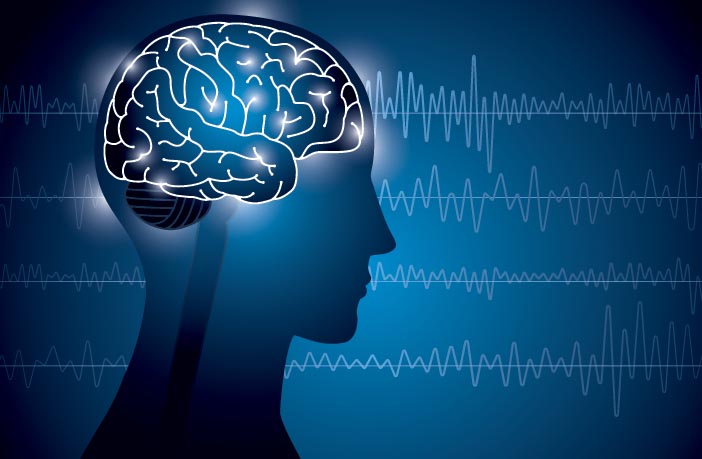Health & Fitness
The Neuroplasticity Of The Brain Is Increased By Modafinil

Modafinil is a prescription drug that can treat narcolepsy and other sleep disorders such as shift work. Modafinil works by increasing alertness and making it easier for people to concentrate.
Studies have shown that results can vary depending on the person taking the medication as well as their health condition. It is possible, for example, that people who have experienced depression have more positive outcomes than those who don’t.
Plasticity of synapses
Synaptic plasticity is a major influence on learning and memory formation. It has shown to link to a range of experience-dependent forms of plasticity in the sensory system, including visual attention, monocular deprivation, and shifts in ocular dominance (Foeller & Feldman, 2004; Dan & Karmarkar (2006)).
There are two types of plasticity: long-term potentiation and depression over time. It has been shown that Modalert 100 online increases the neuroplasticity of glutamatergic neurons within the hippocampus. This is where LTP occurs primarily in excitatory synapses.
It increases depression or paired-pulse facilitation, as well as changes in synapse activity that are induce by stimulation. This type of plasticity has associate with a variety of learned behaviors including cognitive performance and motor control.
Neurogenesis
Neurogenesis is the process of creating new neurons in the brain. Neurogenesis is active most often in the early stages of development. However, it can also occur later in your life.
Researchers discover that neurons can form throughout life in some neurogenic areas of the brain. This challenged the belief that only new neurons could grow and repair themselves. This new way of thinking challenges the belief that memory loss and cognitive decline due to aging are caused by dying neurons, which never regenerate.
There are many factors that can hinder neurogenesis. Stress, depression, and post-traumatic brain injuries can cause the hippocampus to shrink, which could prevent the growth of new neurons. Exercise can help to reduce these effects and promote new neuron development.
Binding Neurotransmitters to Receptors
Neurotransmitters, also known as chemical messengers, transmit signals between nerve cells in your body. After being release from neurons or glial cells, they act on other neurons and target neurons throughout your body.
G-protein-couple (or GPCRs) are receptors that bind neurotransmitters. They perform many functions. Some receptors are essential for controlling activity in other cells and tissues while others are using to transmit and receive information.
You can also check out our articles about inspirational quotes for sobriety or recovery.
They can activate or inhibit second messenger systems such as cAMP and phosphatidylinositol-4,5-bisphosphate. They are most commonly found in the dendrites of neurons, but they can also find on any neuron if there is one.
Modafinil can increase DA and NE levels, which may improve mood. Waklert 150 Tablet makes people more alert and helps them focus better. Modafinil is believe to enhance immune function by creating a new link between the reward system and the immune system.
Plasticity in the Neurons
Neuroplasticity is the brain’s ability to change its structure and function in response and adapt to stressors and other pathological events. This includes controlling neurogenesis and synaptic transmission among other processes at both the molecular level and the cellular level.
Plasticity can see in long-term potentiation, long-term depression, and synaptic swelling. Activity-dependent changes in synaptic strength can observe over time in neurons of LTD and LTP.
Some forms of homeostatic policy can alter the strength of all neuronal synapses in response to long-term changes in activity. This is to offset the potentially harmful effects of other forms of plasticity (Turrigiano & Nelson, 2004). This type of homeostatic policy, also known as synaptic scaling, may still play an important role in the formation and maintenance of neural circuits. Although it works slower than LTD or LTP, it is still very effective.
Plasticity may also involve astrocytes and glia. They can control synapses by sensing extracellular messengers and releasing substances with the potential to affect synaptic efficacy.
-

 Business6 days ago
Business6 days agoS&P 500 Soars in Best May in Decades Amid Tariff Relief and Nvidia’s Surge
-

 Immigration6 days ago
Immigration6 days agoTrump’s Immigration Crackdown: Legal Battles and Policy Shifts
-

 Business6 days ago
Business6 days agoUS Stock Market Soars in May Amidst Tariff Tensions and Inflation Worries
-

 Government6 days ago
Government6 days agoTrump Administration’s Government Reshaping Efforts Face Criticism and Legal Battles
-

 Business6 days ago
Business6 days agoTrump’s Tariffs: A Global Economic Reckoning
-

 Foreign Policy4 days ago
Foreign Policy4 days agoInside Schedule F: Will Trump’s Federal Workforce Shake-Up Undermine Democracy?
-

 Press Release3 days ago
Press Release3 days agoIn2space Launches Campaign to Make Space Travel Accessible for All











